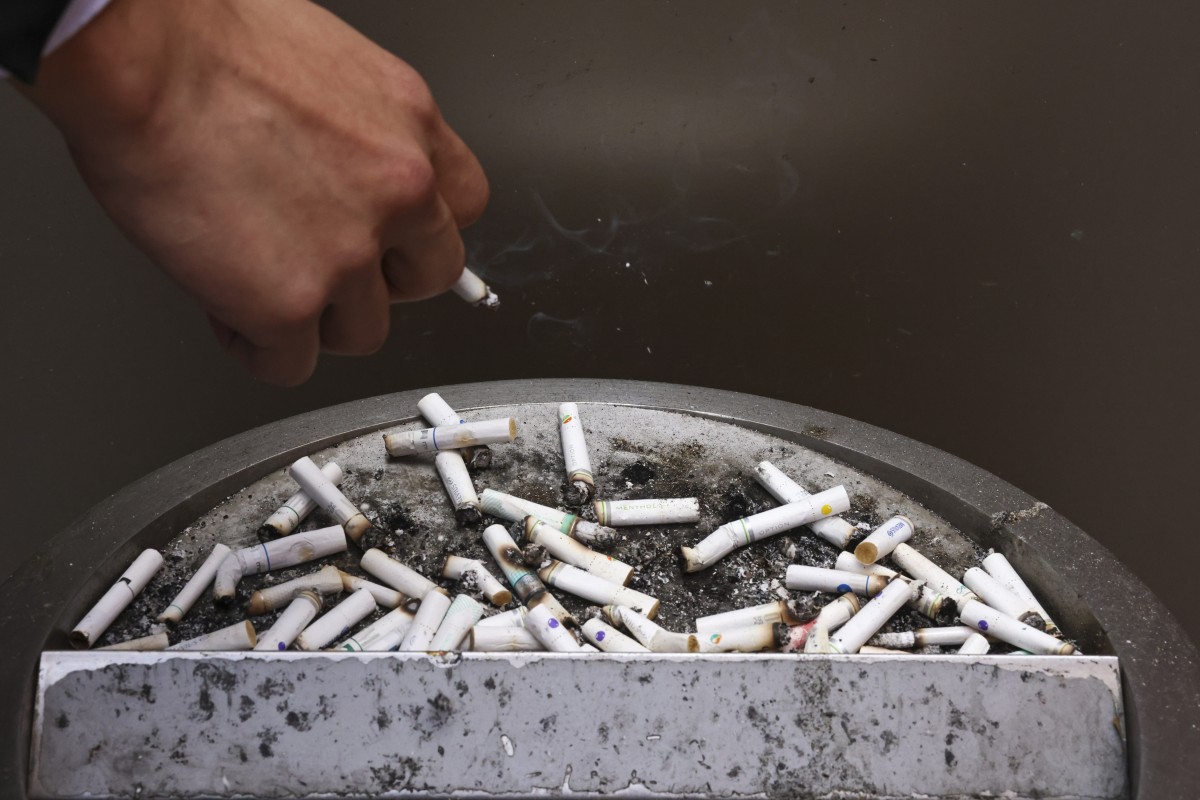
- Health minister Professor Lo Chung-mau says consultation will be based on four anti-smoking strategies
- ‘As a doctor, I don’t want our next generation to suffer from the harms of smoking,’ he says
 Hong Kong authorities have proposed a raft of measures to discourage people from smoking. Photo: K.Y. Cheng
Hong Kong authorities have proposed a raft of measures to discourage people from smoking. Photo: K.Y. ChengThe Hong Kong government has proposed a ban on buying cigarettes for residents born after a certain date in a public consultation aimed at discouraging smoking in the city.
But health authorities on Wednesday stopped short of suggesting concrete measures under four new anti-smoking strategies announced at a press conference.
The consultation, involving a citywide survey, is expected to end on September 30.
Would a generation ban on buying cigarettes shrink Hong Kong’s smoking population?
Health minister Professor Lo Chung-mau said the consultation would be based on four strategies – regulating supply and suppressing demand, banning promotion and reducing attractiveness, expanding non-smoking areas and mitigating harm, enhancing education and supporting quitting the habit.
“To protect our next generation from the harms of tobacco and to ensure the sustainability of our healthcare system, we need to draft strategies and prevent youngsters from consuming tobacco out of curiosity,” Lo said. “As a doctor, I don’t want our next generation to suffer from the harms of smoking.”
He added that there were nearly 600,000 daily smokers in the city. In every two smokers, one would die prematurely. Apart from a rising trend of female smokers, Lo said 7 per cent of secondary school students had smoked at some point in their lives.
Late last year, Lo said gradually raising the legal age for buying tobacco products and preventing the next generation from consuming such items were among options he was considering to control smoking in the younger population. But he did not give concrete details.
In New Zealand, authorities are working to ban the sale of tobacco to anyone born in 2009 or after, with a fine imposed on retailers caught breaching the rule. The ban is expected to come into force in 2027
Jurisdictions around the world have also increased the legal age for buying cigarettes. The mark in Taiwan was recently raised from 18 to 20 years. In Singapore and the United States, the age limit is 21 years. The British government is also considering raising its limit from 18 to 21 years.
Hong Kong’s smoking rate for those aged 15 or older stands at 9.5 per cent, with health authorities trying to bring down the figure to 7.8 per cent by 2025.
Officials earlier said Hong Kong would work towards the Tobacco Endgame, which is commonly defined as reducing the smoking prevalence rate to 5 per cent or below. Authorities have not announced a time frame or road map.
In February, the government raised the tobacco tax by HK$12 for a pack of cigarettes, a move aimed at reducing the smoking population by 100,000 over the next three years.
E-cigarettes and vapes don’t help you quit smoking and may do more harm to your lungs
The policy pushed the average cost of a pack of cigarettes to HK$73.75, with the tax taking up 68 per cent of the total price.
Last year, e-cigarettes, heat-not-burn products and herbal cigarettes were officially banned in the city. People are also prohibited from importing, promoting, manufacturing, possessing for commercial purposes or selling the products.